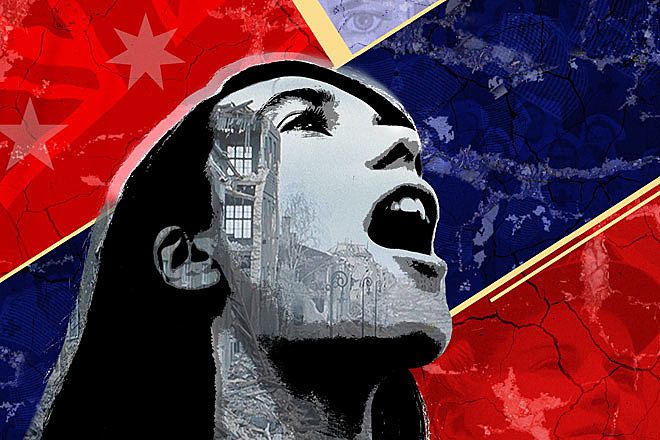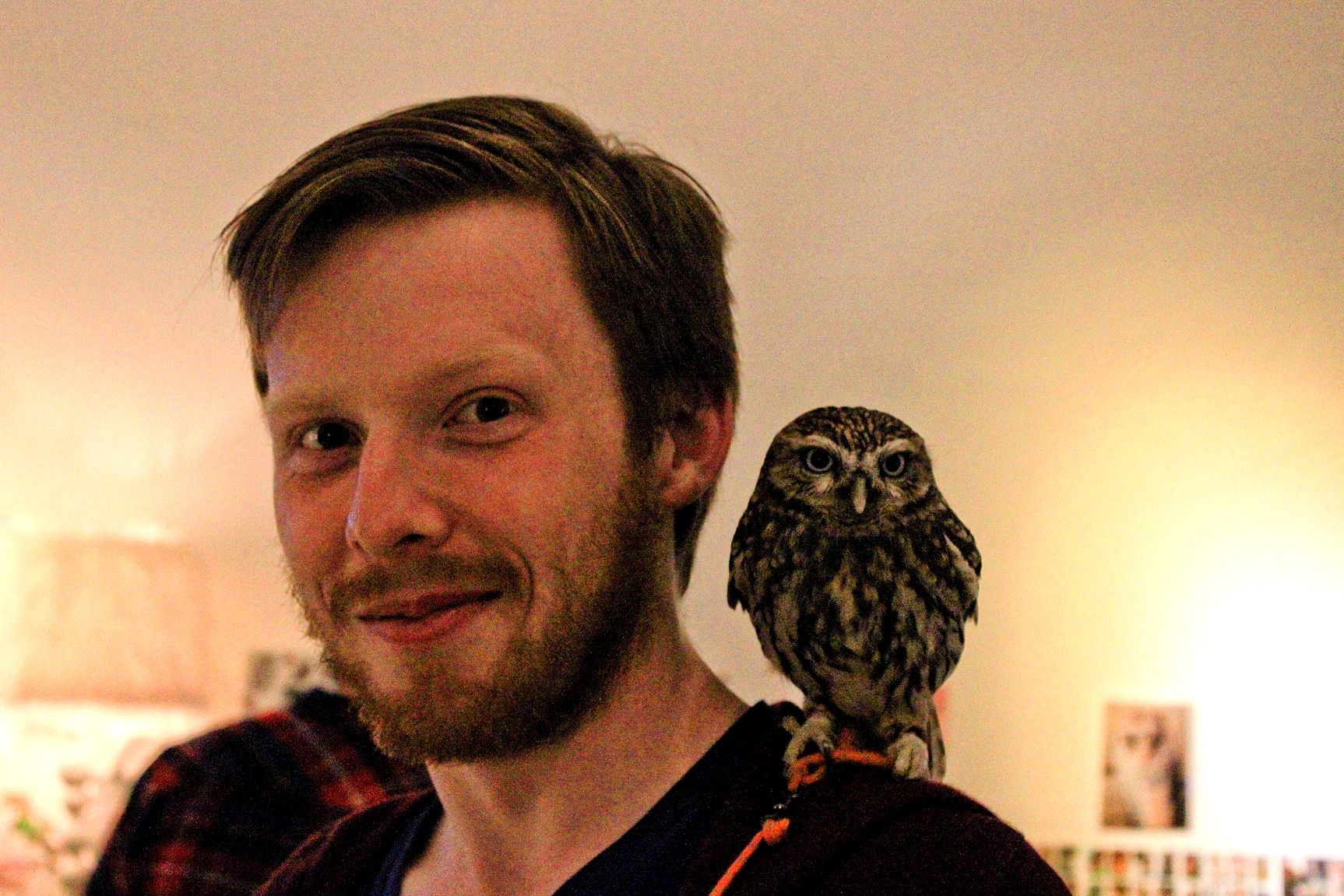Review: Dead Men's Wars
Adam Goodall reviews Dead Men's Wars
On the 25th of April 2015, SBS soccer reporter Scott McIntyre tweeted, “the cultification of an imperialist invasion of a foreign nation that Australia had no quarrel with is against all ideals of modern society.” McIntyre tweeted four more times, criticising Australia’s myopia over Anzac Day before highlighting Anzac brutality in Africa, the Middle East and Japan.
Two days later, he was fired. SBS issued a press release to explain. That press release opened with the line that “Respect for Australian audiences is paramount at SBS.”
In the interim, McIntyre endured a venomous onslaught across social media. Some criticised him for his historical accuracy; most just wanted to ruin him. He was “despicable”, “an Anzac-hating grub”, “bad for business and worse for humanity.” “I’d like to punch Scott McIntyre in the face,” tweeted one anonymous Australian. “Talk about missing the point of Anzac Day completely.”
McIntyre’s case and cases like his echo through Dead Men’s Wars, written by Ralph McCubbin-Howell and co-produced by Canberra Youth Theatre and Wellington’s Long Cloud Youth Theatre. Our “Anzac hating grub” is Lori (Bella Guarrera), an opinionated teen selected to represent the New Zealand half of the Anzacs on a tour commemorating the 100th anniversary of World War One. Like McIntyre, Lori uses the platform she’s given - an Anzac Day speech at Gallipoli - to criticise the populist mythology we’ve built around the Anzacs, taking on the twisting of Anzac history into a celebration of men and masculinity at the expense of those women who served. Also like McIntyre, she’s buried under the public’s hateful, abusive response.
McCubbin-Howell knows the internet and he knows how to make the internet theatrical. His 2014 play Second Afterlife made it playful and cool, a buoyant blitz through the corners of the internet that we view through rose-tinted glasses, like MySpace and Bebo. Dead Men’s Wars takes it in another direction. Here, he emphasises the repetition and extreme polarity of online outrage; director Brett Adam, in his second show as LCYT’s Artistic Director, is faithful in his translation. The ensemble, their mouths covered by gauze strips, bark ‘slay queen’ and ‘traitor slut’ with equal force. They circle Lori, stare her down, aim at her with mock rifles. The set, two storeys of timber jutting out like barbed wire, feels like the backdrop to a deserter’s execution.
The aggression on Twitter comes and goes in harshly-lit flashes. The internet’s just another filter, one part of a hopelessly complicated map. Dead Men’s Wars charts that map, surveying myth-building in the modern age: from the grim truths swept under the rug to the defence mechanisms that shut down public scrutiny.
McCubbin-Howell bookends the play with scenes that illustrate his central thesis. He opens with the kind of reverent Boys’ Own adventure that’s traditionally fuelled our weepy-eyed patriotism. McCubbin-Howell nails the tone, twisting his typical language and rhythms into hollow nationalist small talk (‘I’m just a lad from the Canterbury plains’). The last scene is stripped of idealism, centre stage given instead to the women our history ignores and the grim, horribly sexist reality of their service. Where the first scene ends in a spotlight, the last ends in darkness - and the lack of closure that comes with it.
The rest of the play steadily moves through the build-up to and aftermath of Lori’s speech, the ghosts of the past reaching out to her while the present goes for her throat. She doesn’t develop in a conventional sense, given that she spends most of the play sitting in limbo. Her views deepen as people argue around her but for the most part she’s weathering a storm, as embodied by Twitter and by tour leader Darryn (Andrew Eddey). Darryn frequently reminds her that she’s only on the tour because the sponsors thought she’d toe the line, and his romantic view of Anzac Day is articulated through facile concepts like ‘mateship’ and ‘team spirit’.
Dead Men’s Wars is structured around these arguments: McCubbin-Howell takes conflicting views about Anzac Day, slams them into each other and sees how far they can go before they break. The result is an impressively wide-ranging exploration of Anzac as a political narrative. One scene explores how capitalism encourages companies to unquestioningly embrace patriarchal mythmaking; another questions whether the ‘Anzac spirit’ even exists as a concept when Australia is trapping refugees in detention camps and both countries are still actively oppressing their indigenous peoples. Every question - whether the soldiers felt fear, why ‘tradition’ is built on exclusion, why we even need to interrogate Anzac Day if its values are sound - is put forward to draw out arguments and counter-arguments, to help the audience pull apart the stories and find the truth inside.
This means that the political argument is the foreground, the text. Dead Men’s Wars isn’t coy about what it’s about. It’s a demanding script because of this, especially for the young actors for whom LCYT and CYT are training grounds. Some handle the complexity better than others. As Lori’s liberal backpacker brother Owen, Liam Kelly wonderfully complicates his character’s cynicism by visibly enjoying himself whenever he indulges it. Guarrera hides uncertainty behind her strength of conviction and increasingly mature ways of expressing those convictions, while Nathalie Morris, playing Australian podcaster Charlie, slowly and effectively opens up her wallflower character in response to Lori’s boldness.
Other actors find it harder to sink emotion into dialogue that’s centred on the exchange of ideas, or to communicate that emotion physically. Nobody lets their energy flag, though, and there’s a sense that everyone on stage believes they’re part of something important. That charge, that motivation, helps carry us through some of the ropier parts.
In contrast to the activity and emotions of the teens and their minders, the ghosts of the past drift passively through the ‘sacred’ sites of past violence. Adam and his designers - set and costume designer Christiane Nowak; lighting designer Niklas Pajanti; sound designer Coleman Grehan - rise to the provocation. The rough timber set looks like a barricade out of time under Pajanti’s hazy blue lights. The ensemble are dressed in a literally ghostly palette of whites and greys, talking through the gauze filters wrapped around their mouths. Grehan scores the play with Bernard Herrmann strings and jarring percussion, ironically quoting the past to undermine its old-fashioned pomp and celebration. It’s somewhat ironic, then, that the score can be intrusively loud, distracting from the whole of the picture.
Dead Men’s Wars is strongest when it’s articulating how the personal and political are tangled up in each other, showing how the political can become personal through sheer force of belief. We’re personally invested in Lori and Owen’s defence of their values because Guarrera, Kelly and McCubbin-Howell make us believe that those values are fundamental to their identity, that defending those values is something more than an academic exercise to them. Similarly, we connect with Australian student Kip when he argues that the simplicity of the Anzac myth can be worthwhile because he’s honestly integrating his own need for reassurance and moral comfort into his political views.
Just because Dead Men’s Wars is strongest when it’s articulating those ideas, though, that doesn’t mean that its articulation of those ideas is always strong. In particular, McCubbin-Howell seems to back away from exploring the normal, everyday cultification of Anzac Day by giving Darryn and Kip financial and emotional incentives to participate in that process. Darryn’s climbing the corporate ladder in an organisation that needs him to ‘toe the line’; Kip has a personal reason that feels like it’s been dropped at our feet as an easy explanation, the play shying away from exploring how this reason factors more generally into the map of modern mythmaking. Consequently, the tweeters that scream #traitor are left to embody the more casual nationalism that keeps the Anzac myth alive. The inquiry, then, feels like it’s falling short at a critical hurdle.
McCubbin-Howell also keeps the personal at armslength from the political a lot more than feels necessary. Lori and Kip’s awkward teen romance goes nowhere because it doesn’t feel connected to the rest of the play, and Darryn’s casual sexism towards tour co-leader Helen (Lydia Buckley-Gorman) brings no new insight to the show’s otherwise-nuanced discussion of how women’s voices and achievements are discounted by the people writing the narratives. Further, when Lori’s mum calls her to talk about her speech, it feels like a narrative beat that’s present because it has to be present rather than a beat that contributes something substantial to the conversation. The script feels like it’s making concessions where concessions aren’t necessary, and it dilutes the play’s overall impact.
Dead Men’s Wars is cluttered, even for a script driven by the debate of fairly unwieldy ideas, and it doesn’t always cohere in the ways that it’s trying for. But it’s also passionate, historically-minded and fuelled by genuine curiosity, pulling apart the patriarchal construction of the modern Anzac myth from as many angles as it can cover. It’s a rough and loud unpacking of our affection towards and disaffection with Anzac Day as a national construct, both visually and in its text, and there’s little more respectful than that.
Dead Men's Wars runs at
BATs from October 23 - October 31
For tickets and more information, go here.

